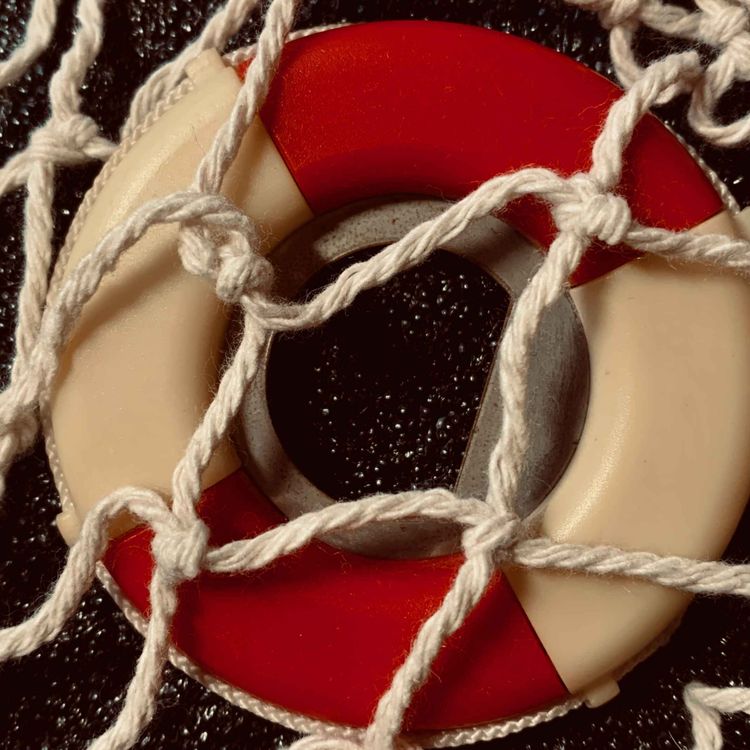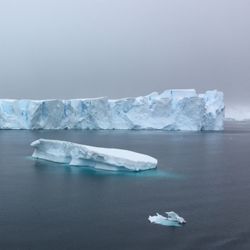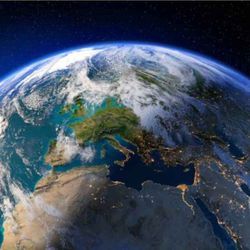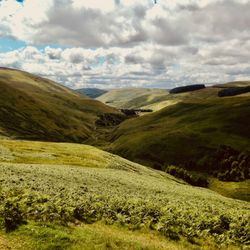Share

The Climate Papers
Putting the zero into net zero
Ep. 3
•
Join Professor Chris Hilson and Dr Joeri Rogelj as they discuss just what 'net zero' means and what are the implications are for the UK of a net zero world. Are the targets and dates just a distraction? How do we ensure climate justice between and within countries, amongst communities and between generations, and will some people and places be left behind?
This latest in the Climate Papers series explores the what, when and how of net zero and how to make sense of the Paris Agreement plus what it means for COP26 decisions and demands.'
More episodes
View all episodes

5. Hot, hot, hot – how communities cope with extreme weather
41:09||Season 2, Ep. 5In this fifth episode we discuss the public health risks associated with the more frequent extremes of weather we are likely to experience as a result of climate change. We discuss aspects of vulnerability and resilience to the effect of these extremes and how a joined up approach can help individuals and communities to cope better. To get into the detail of this issue we are joined by Dr Ana Raquel Nunes, Assistant Professor in Environmental Change and Public Health at the Warwick Medical School, University of Warwick, and Ross Thompson, Principal Environmental Public Health Scientist within the Extreme Events and Health Protection team at the UK Heath Security Agency.
4. Climate Risk & Attribution
31:23||Season 2, Ep. 4In this fourth episode we discuss climate risk and attribution – understanding how man-made 'forcing factors' can affect the intensity and probability of extreme weather events such as heat waves and extreme rainfall leading to droughts and flooding. As our understanding of this emerging and complex area of climate science increases we may be better placed to understand climate risk and avoid or adapt to extremes of weather. To unpack this issue we are joined by Dr Neven Fučkar, Marie Sklodowska-Curie Individual Fellow, COP26 Fellow in Climate Risk, and Departmental Tutor at the University of Oxford and Prof Liz Bentley, Chief Executive of the Royal Meteorological Society.
3. Tipping Points
32:56||Season 2, Ep. 3In this third episode we discuss climate risk tipping points – those moments when a small change or changes become so significant they cause a much larger and often irreversible shift. Have we reached such a point with climate change? The most recent IPCC report appears to suggest that we are now on such an irrevocable path. We are joined by climate scientist Dr Eric Mackie from the University of Cambridge and Dr Luke Kemp, a research associate at the Centre for the Study of Existential Risk at the University of Cambridge.
2. Anxiety Vs Apathy
41:53||Season 2, Ep. 2In this second episode of our Climate Risk series researcher and writer Freya Roberts from UCL's Climate Action Unit and Professor Liz Bentley, Chief Executive of the Royal Meteorological Society, discuss the need to get the right message across to all sectors of society around risk. What lessons have we learnt from Covid and is there a right or wrong way to sharing information?
1. Climate Risk 2022: What you should know
45:47||Season 2, Ep. 1In this first of a series of Climate Papers podcasts produced in conjunction with the UK Universities Climate Network we talk with experts Alyssa Gilbert from Imperial College London, Emily Shuckburgh from Cambridge Zero, Kris De Meyer from King's College London and Craig Hutton from the University of Southampton to get an insight and introduction to climate risk and why it is so important to understand, quantify and mitigate it as far as possible. Building on the work of the Climate Risk project managed by Cambridge Zero (University of Cambridge) and the Grantham Institute, Imperial College London, the series will look at climate risk from a variety of angles – how it is assessed, communicated, and translated into action.Photo by Kelly Sikkema on Unsplash
8. Co-benefits
37:08||Ep. 8As we head ever closer to COP26 in Glasgow our Climate Papers podcast series dives even deeper into some of the key issues which will shape and inform the discussions both in the main negotiations and in the many fringe events which will happen across the city. In this episode we focus upon the co-benefits* associated with climate change mitigation and adaptation policy and action. We are joined by Professor Sebastien Chastin, Professor of Health Behaviour Dynamics: People, Places, Systems at Glasgow Caledonian University and Professor Laura Diaz-Anadon who holds the chaired Professorship of Climate Change Policy at the University of Cambridge. *The Fifth Assessment Report of the IPCC defines co-benefits as being “the positive effects that a policy or measure aimed at one objective might have on other objectives... co-benefits are also referred to as ancillary benefits”
7. Counting the Cost of Climate Finance
41:44||Ep. 7Join our experts Dr Jessica Omukuti (University of York) and Dr Harald Heubaum (SOAS University of London) as they discuss the financing and investments that will support a global transition to net zero. How and where is the money being raised and spent? How do we account for loss and damage? What more can be done to support least developed countries and small island developing states?
6. It's Rocket Science!
37:41||Ep. 6Our sixth podcast in the series looks at the important role played by space-based Earth Observation. Hosts Amanda Carpenter and Alyssa Gilbert are joined by Prof. Marian Scott and Prof. Jonathan Bamber as they explain how Earth Observation combined with in-situ and sensor data provides a powerful means to observe environmental changes over space and time in unprecedented detail, even in remote parts of the globe. We find out how Earth Observation satellites are our eyes on the planet and why, without them, we would be virtually blind to the magnitude and timing of climate change and to human interference with the fragile ecosystems we all depend on. You can download the paper here
5. Nature Based Solutions
39:17||Ep. 5Join Alyssa Gilbert and guests Professor David Coomes & Dr Ana Queirós as they discuss how forests and oceans can help to mitigate climate change and support vital ecosystems across the world.A copy of the paper can be downloaded here